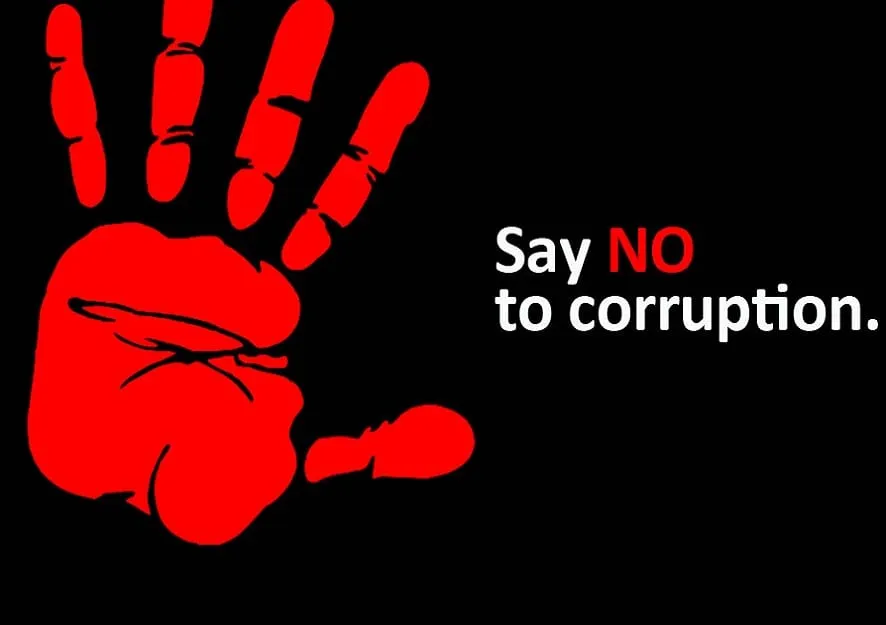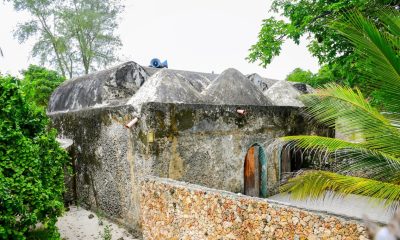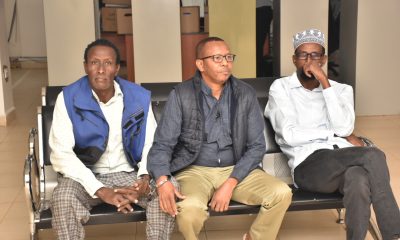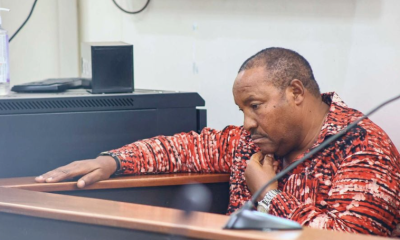Opinion
Omogi: How Regime Changes Impact The War On Corruption

The form of dishonesty or criminal offense undertaken by individuals entrusted in a position of authority, in order to acquire illicit wealth or abuse power for selfish interest is corruption. The vice involves many activities including bribery and embezzlement of public funds.
In many cases, unscrupulous businessmen bribe government officials especially in the procurement department to take shorter time in to have their contracts approved and lock out genuine competitors.
But the vice is not only widespread in developing countries like Kenya where the people and the economy are the worst hit, it is also common in kleptocracies, oligarchies, mafia and narco-states.
Data from 2022 Corruption Index (CPI) shows that many countries have failed to stop the vice as it ranks 180 countries and territories across the globe by their perceived corruptions levels in public sector.
Scoring on a scale of 0 (highly corrupt) to 100 (very clear), the study reveals that the global average has remained the same for more than a decade at just 43 out 100. Meaning, more than two-thirds have scored below 50, while 26 countries have dropped to lowest scores and 155 countries have either declined since 2012 or made zero significance against corruption.
Kenya for instance is ranked at position 123 with a score of 32 as the index reveals a serious stagnation across the globe despite each country facing its unique challenges. Even countries in top scoring region, European Union and Western Europe have been stagnant for more than a decade or declined over the past five years.
But countries with low scores especially from Sub Saharan Africa, Central Asia, Americas and Eastern Europe haven’t been abled to make significant progress due to restrictions and attacks on civic space and basic freedom space which heavily threatens security and stability, democracy and human rights.
Corruption is rife in public sector especially the National Police Services which is the most bribery-prone institution in Kenya. Recent research has found that 75% of Kenyans believe that most or all police officers are corrupt, and one-in-two Kenyans who have interacted with the police have admitted to bribing them.
The police force frequently engages in corruption crimes such as false imprisonment, fabrication of charges and abuse of human rights to extort bribes, but are rarely arrested or prosecuted.
Many leaders are also focused on economic recovery and not fighting corruption which is slowing economic growth through slashing of human capital and spending on education and healthcare.
In Kenya, corruption is deeply rooted in all almost every sector of the economy with all political outfits yearning for power promising to tackle it head-on to revamp the struggling economy.
“Leaders can fight corruption and promote peace all at once. Governments must open up space to include the public in decision making – from activists, business owners to marginalized communities and young people. In democratic societies, the people raise their voices to help root out corruption and demand a safer world for all”. Daniel Eriksson, Chief Executive Officer, Transparency International.
Leaders of previous Kenyan governments have admitted that the country is losing one-third of its budget to the vice. A senior official from the National Treasury once told a parliamentary committee that the country is losing more than $4bn every year.
There are several reports of top government officials diverting huge sums meant for development projects and education to their personal pockets. And as things stand, many citizens are not surprised by the news of the losses, but by the fact regimes led by different officials embrace corruption by pocketing through kickbacks and bending of procurement regulations.
Taking 10% of any awarded government tender or inflating project costs are the commonest tricks of dipping into government coffers. Corruption has been reported in all successive regimes with efforts by anti-corruption commission causing ripples in government quarters as sleuths struggle to prosecute corrupt state officers.
It has resulted to unemployment, high levels of poverty, increased insecurity, kidnappings, cultism and cattle rustling. The regime of the day has emphasized its commitment to de-politicize and remove weaponization of the criminal justice system in its war against graft. It argues that the move will allow the relevant institutions to freely exercise the independence given to them by the Constitution.
A section of politicians allied to the new administration accused a retired regime of subjectively and wrongfully targeting them with graft charges in the run up to the last general elections.
But as the as war to defeat corruption rages, the country has also witnessed the Office of the Director of Public Prosecution [ODPP] withdrawing high profile graft cases facing top state officials.
Critics and opposition politicians questioned the move, independence of the ODPP and the timing of the withdrawals while others have defended the move, arguing that some cases were fabricated by the former regimes for political reasons.
Some legal experts also argue that withdrawals could be a pointer to the fact that the ODPP was not working independently while prosecuting the cases but was acting under duress from political forces in the past regimes.
A survey conducted in 2017 showed that 67% of Kenyans do not believe that the government is putting enough effort to curb corruption. The respondents rated the anti-corruption performance of the previous regime as average, while the judiciary and legislative service were rated as poor.
The current regime has pledged to allow the relevant institutions to freely exercise the independence given to them by the Constitution to prosecute corruption and economic crimes.
Cyprine Omogi is Education Expert and Anti-Corruption Crusader.
Kenya Insights allows guest blogging, if you want to be published on Kenya’s most authoritative and accurate blog, have an expose, news TIPS, story angles, human interest stories, drop us an email on [email protected] or via Telegram
-

 News2 weeks ago
News2 weeks agoTHE FIRM IN THE DOCK: How Kaplan and Stratton Became the Most Scrutinised Law Firm in Kenya
-

 Economy2 weeks ago
Economy2 weeks agoIran Demands Arrest, Prosecution Of Kenya’s Cup of Joe Director Director Over Sh2.6 Billion Tea Fraud
-

 Grapevine1 week ago
Grapevine1 week agoA UN Director Based in Nairobi Was Deep in an Intimate Friendship With Epstein — He Even Sent Her a Sex Toy
-

 Business2 weeks ago
Business2 weeks agoA Farm in Kenya’s Rift Valley Ignites a National Reckoning With Israeli Investment
-

 Business2 weeks ago
Business2 weeks agoKPC IPO Set To Flop Ahead Of Deadline, Here’s The Experts’ Take
-

 Politics2 weeks ago
Politics2 weeks agoPresident Ruto and Uhuru Reportedly Gets In A Heated Argument In A Closed-Door Meeting With Ethiopian PM Abiy Ahmed
-

 Investigations1 week ago
Investigations1 week agoHow Mexico Drug Lord’s Girlfriend Gave Him Away
-

 Business1 week ago
Business1 week agoSafaricom Faces Avalanche of Lawsuits Over Data Privacy as Acquitted Student Demands Sh200mn Compensation in 48 Hours





























